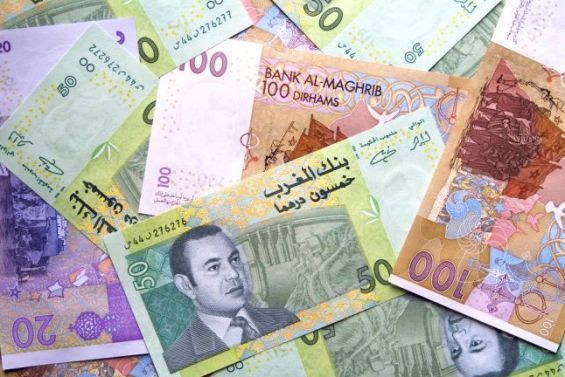A few days after the Ministry of Economy and Finance announced that Morocco is adopting a more flexible foreign exchange system, the head of the High Planning Commission said that inflation is to rise in the upcoming months. Ahmed Lahlimi who was also a former minister, told Reuters in an interview that inflation would reach «1.6 percent in 2018 from 0.2 percent» in 2017, influenced by the oil prices that are on the rise and food and other goods expected to become more expensive.
Commenting on the step initiated by Bank al-Maghrib (BAM) and recommended by the International Monetary Fund (IMF) to strengthen Morocco’s shock-absorption capacity and help maintain its competitiveness, Lahlimi told the British news agency that «we (Moroccans) need details».
«There should be a national dialogue for the government explaining the factors behind the decision», he argued, adding that the IMF needs also to shed light on how the new regime is going to meet the needs of the Moroccan economy. Lahlimi expects the national economic growth to slow down in 2018 from 4 percent last year.
Fitch's forecast
The new exchange rate regime, managed by BAM through a band ranging from +/-0.3% to +/-2.5% and based on an unchanged basket composed of the euro (60%) and the US dollar (40%), was also evaluated by Fitch, one of the biggest credit rating agencies.
In its note, published on the 17th of January, the agency indicated that Friday’s announcement «poses little risk for macroeconomic stability, but the economic benefits will be modest in the short term as the trading range is still narrow».
And to support Lahlimi’s predict, Fitch indicated that inflation in Morocco is currently low, referring to November 2017 where it reached 1,3%, but is expected to amount to 2% in the two coming years.
However, the rating agency believes that the Moroccan central bank’s plan to widen the band of fluctuation would allow it to introduce a «new monetary policy framework focusing on targeting inflation».
Boussaid's response
Meanwhile, in a joint meeting of the Finance and Economic Development Committee at the House of Representatives and the Committee of Finance, Planning and Economic Development at the House of Advisors, held on Wednesday in Rabat, Minister of Finance and Economy, Mohamed Boussaid, commented by its turn on the consequences of the new reform.
Boussaid indicated that the current fluctuation rate «would not significantly affect the level of inflation and therefore citizens' purchasing power».
Quoted by MAP news agency, he stated that the current economic conditions are suitable for initiating this reform, given the soundness of the domestic financial sector and the strength of macroeconomic indicators, in particular the appropriate level of foreign exchange reserves and the continuous monitoring of inflation.
Before actually taking the step of adopting a new exchange rate regime, Bank al-Maghrib was expected to initiate that around the end of June. This was postponed as the financial institution realized the rapid fall in foreign exchange reserves and feared inflation.





 chargement...
chargement...













